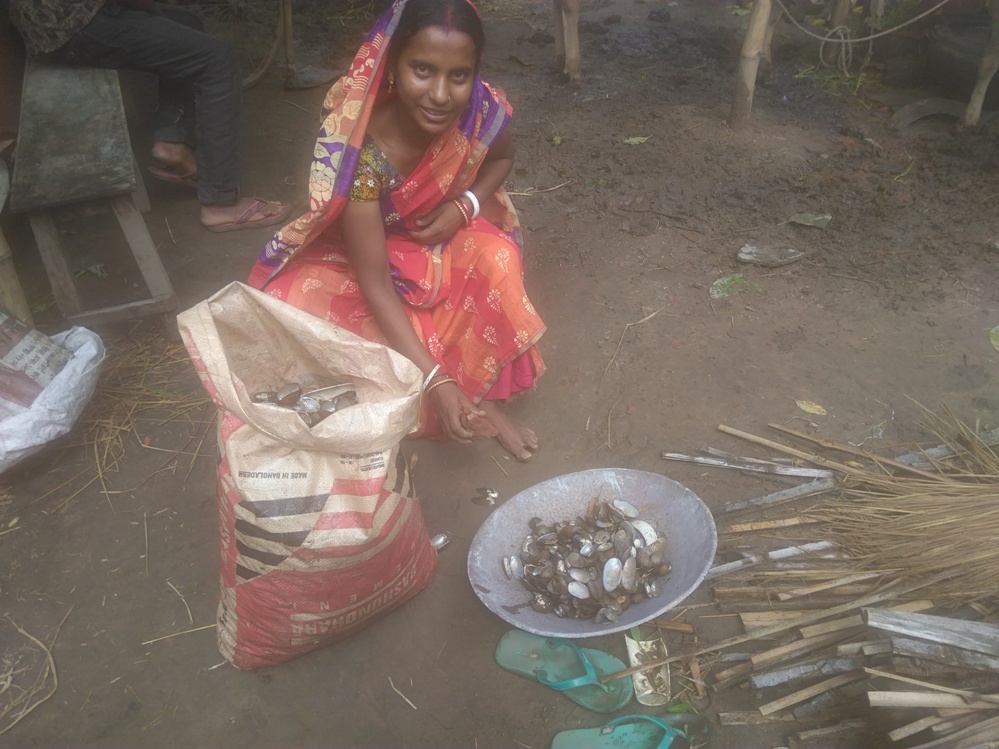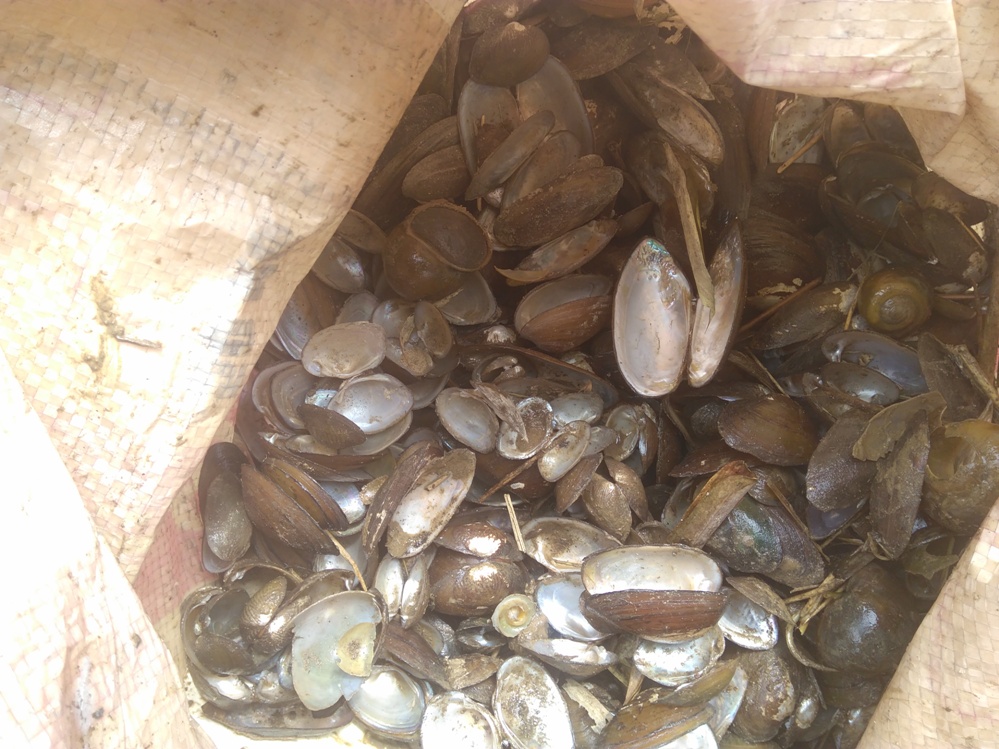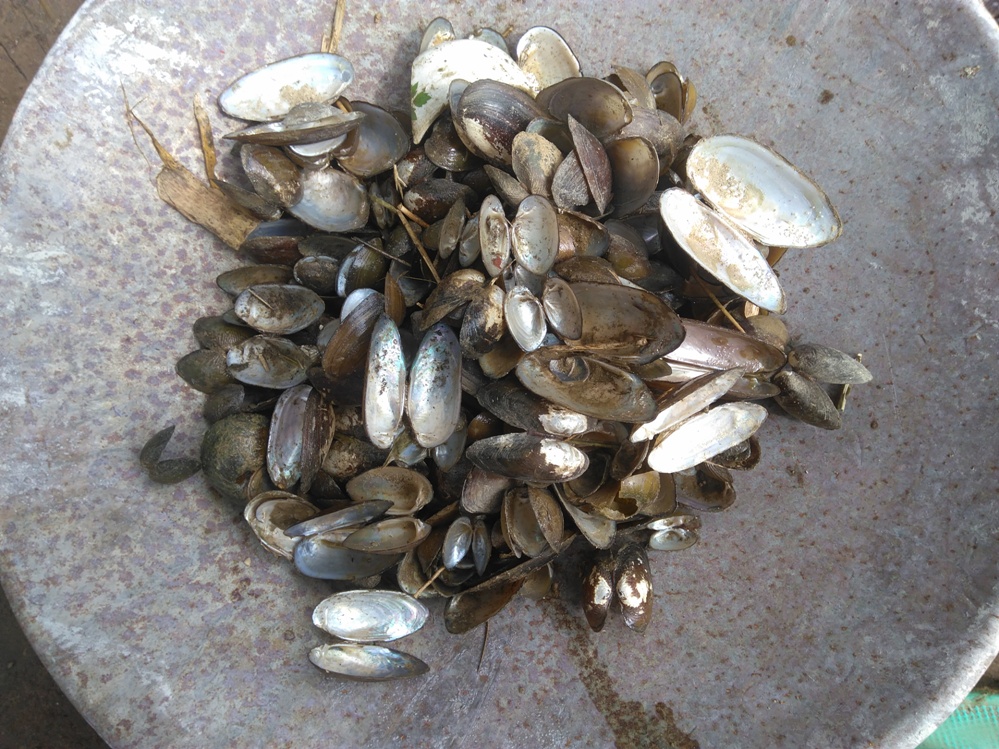Oysters are beneficial for water and environment
Amreto Kumar Sarkar from Rajshahi
Kaligonj is one of the villages located at Shiv River bank. Marginalized community called Pal (potter) along with farmers have been living at this village for years. Due to water availability there exist large number of oysters which are grown naturally in this part of the Shiva River. Local people collect oysters arbitrarily for chicken and duck’s feed. However, this randomly collection of oysters impacts the environment of the area.
The role of the oyster in the protection of natural ecosystem is immense. Mice eat eggs of oysters in paddy fields and due to this the mice seldom eat the grown paddy in the field. Besides, the main food of natural and local fish is the oyster’s egg. Oysters help to filter the seaweed water and thus naturally keeps the water pollution free. But due to the destruction of oysters as well as random collection of oysters insects and pests have increased in agricultural land that causes land losing fertility. This also makes the environment losing natural balance.
However, with the objective to create awareness among the people Pal community organized a village meeting and depicted the importance of oysters for the environment. Farmers, women and villagers participated in this meeting. The discussants discussed regarding the various beneficial roles of oysters and urged people not destroy this benevolent creature. The participants in the meeting thus decided to declare the portion of Shiv River as a sanctuary of oysters. Based on this decision, the villagers will prevent anyone who tends to collect and destroy oysters. The participants also decided to create mass awareness for conserving oysters by establishing billboards at the appropriate place of Shiv river. They also vowed not to throw garbage and waste in the river.
Srimati Minati Pal (45), who collected the soil from the Shiva River and made pottery said, “Because of the river alongside our village, almost all women in the village are associated with duck rearing. In addition, we used to collect all the year’s oysters from this river as duck’s feed. We did not know that oysters are beneficial for water and environment. Nobody ever talked to us or did not discuss about this.” She also informed that the quantities of oysters in the river are now very low. Dijendranath Pal (65) of this village said, “In the past, when there were large quantities of oysters in our Shiv River, there was no rotten stink mud in the river bed. The oysters kept all the rotten stink mud clean by eating them. Then the river’s water would have been clean.” He said that now the oysters have decreased considerably due to the use of pesticides in paddy cultivation on the nearby Billkumari beel. He exclaimed, “If we collect the oysters in this way; then there will be no oysters in near future. Because, the women of the village collected large quantities of oysters to feed poultry. “
In the village meeting, villagers of the Kaliganj potteries group expressed their confidence in the collective awareness to Shutting off the oyster-killing of Shiva River.
Translated by Bahauddin Bahar



